
Liver disease refers to any condition that damages the liver and affects its ability to function properly. The liver is a vital organ that helps digest food, store energy, and remove toxins from the body. When it's affected by disease, these important tasks are disrupted. Liver disease can range from mild inflammation to serious conditions like gastro- liver disease, cirrhosis, fatty liver, or liver cancer.
It is a general term patients use for liver issues linked to digestion. It often includes signs from both the liver and the stomach.
Liver cirrhosis is a serious condition where the liver becomes hard and scarred due to long-term damage. This makes it hard for the liver to work properly.
Fatty liver means fat builds up inside the liver. This can stop the liver from working properly over time.
Doctors call it fatty liver disease or hepatic steatosis. It is very common and often found during health check-ups.
Two main types:
Treatment for liver diseases means using medicines, lifestyle changes, or surgery to help the liver work better and stop the disease from getting worse. Doctors choose the treatment based on the cause, like hepatitis, fatty liver, cirrhosis, or liver cancer.
Some people call it “liver problem treatment,” or just “medicine for the liver.” These are common terms patients and families may use when asking for help.
Many believe that liver problems always need surgery, but this is not true. Most liver diseases can be managed with medicines, food changes, and rest if it is found early. Surgery or a liver transplant is needed only in serious cases.
Always talk to a liver specialist before starting any treatment. Some home remedies or over-the-counter pills may make liver problems worse.
Disclaimer: The information provided is for general awareness only. Liver diseases vary in severity and treatment requirements. Always consult a qualified liver specialist or doctor for proper diagnosis, personalised advice, and treatment. Do not rely on home remedies or over-the-counter medications without medical guidance.
People need treatment for liver diseases to stop damage, reduce pain, and stay healthy. The liver is a vital organ. It helps clean the blood, digest food, and store energy. If the liver is sick, the whole body suffers.
Liver diseases can result from infections, unhealthy habits, or inherited conditions. Some causes are preventable, while others are passed down in families.
Here are the most common causes:
Liver disease symptoms often start mild and get worse over time. Many people don’t notice the early signs. That’s why it’s important to get tested if you are at risk.
Common symptoms include:
The prominent signs of liver damage are extreme nausea, yellowing of skin (jaundice), and abdominal pain. Early diagnosis gives the best results.
Major types of liver disease that need early treatment are Fatty liver, Liver Cirrhosis, Gastrointestinal Liver Disease and Liver Cancer.
Common symptoms include:
These symptoms can point to conditions like fatty liver, hepatitis, or early liver damage. Some people also confuse these signs with regular stomach problems. But if they happen often, a liver test is needed. Do not ignore these signs. Early treatment prevents more serious liver damage.
Liver cirrhosis symptoms often start slowly and get worse over time. In the early stages, many people may not feel anything. As damage grows, signs become clear.
Main symptoms include:
Fatty liver often has no clear symptoms in the early stages. Many people find out only during a regular blood test or ultrasound. As the condition gets worse, you may notice:
Symptoms of liver disease should lead to treatment as soon as they appear. Many liver diseases do not show clear signs at first, so waiting can be dangerous.
Doctors may start treatment after:
Liver cirrhosis cannot be fully reversed, but proper treatment can slow down the damage and improve your quality of life. Recovery means controlling symptoms, stopping more damage, and keeping the liver as healthy as possible.
Medical treatments
Lifestyle changes
Treatment for liver cirrhosis varies by individual. Always consult a liver specialist or doctor before starting or changing any medications or procedures.
A liver cirrhosis patient requires a carefully managed diet to support liver function, prevent complications, and maintain overall health. It is based on individual needs and the stage of cirrhosis. In general, a liver cirrhosis patient has the following diet.
1. Calories and Protein Intake
2. Low Sodium (Salt) Diet
3. Fluid Restriction
4. Carbohydrates and Fats
5. Vitamins and Minerals
6. Small, Frequent Meals
7. Foods to Avoid
Here is a sample diet chart for a liver cirrhosis patient
Diet must be adapted based on the stage of cirrhosis, the presence of ascites or encephalopathy, and the doctor’s advice. Always follow your doctor’s or certified dietician’s advice before making dietary changes. Regular nutritional counselling is essential.
Recovery from liver cirrhosis takes time. With the right care, many people with cirrhosis live longer and feel better.
If you experience any of these symptoms for more than a few weeks, it is important to seek medical advice. Early treatment gives the best results. Bangla Health Connect can connect you with experts at the leading hospitals across the world.
.png)
Through Bangla Health Connect, Bangladeshi patients can access leading hospitals across India, Thailand, and other countries that are globally recognised for excellence in liver care. Many families travel abroad for treatment because of the specialised expertise, advanced facilities, and reliable outcomes provided by these hospitals.
Here’s why Bangladeshi patients choose liver treatment with Bangla Health Connect:
Bangla Health Connect provides Bangladeshi patients with a trusted pathway to expert liver specialists, advanced treatment, and international-quality care at affordable costs.
Bangla Health Connect connects patients with leading hospitals worldwide. These centres are recognised for their excellence in liver care, the use of advanced surgical and non-surgical treatments, including liver transplantation, and specialised support tailored for international patients.

.jpg)

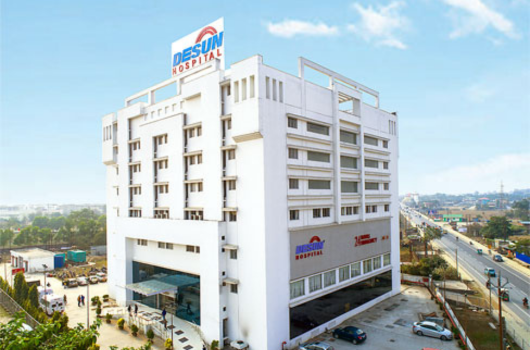
.png)
.png)

.jpg)
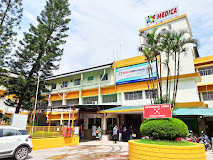
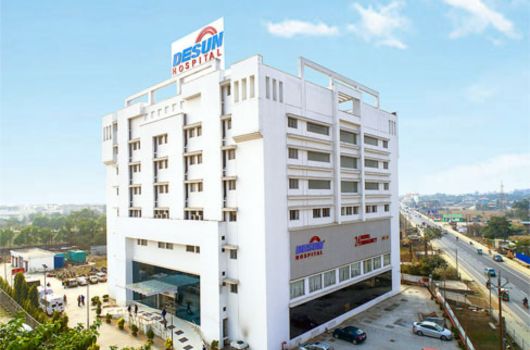
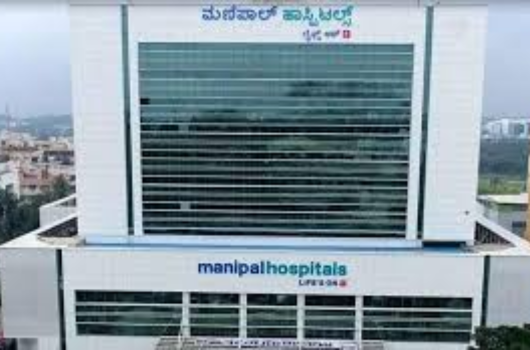






.png)
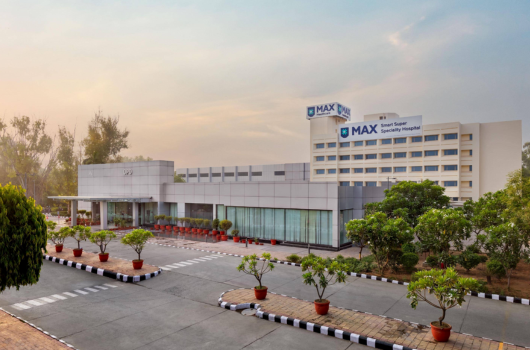
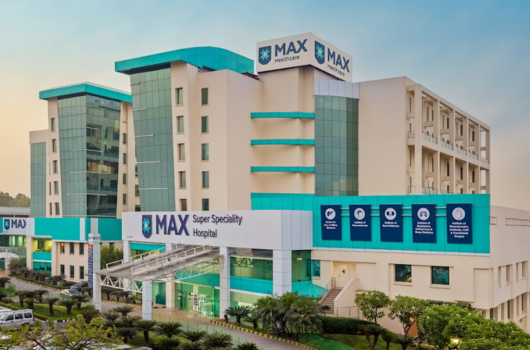
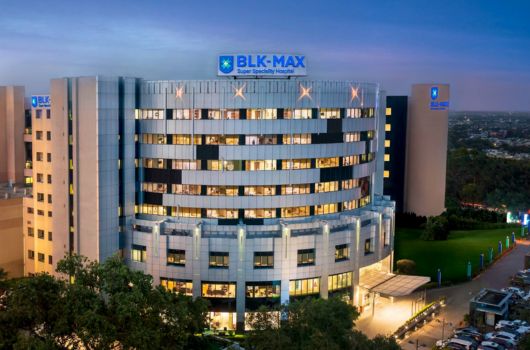
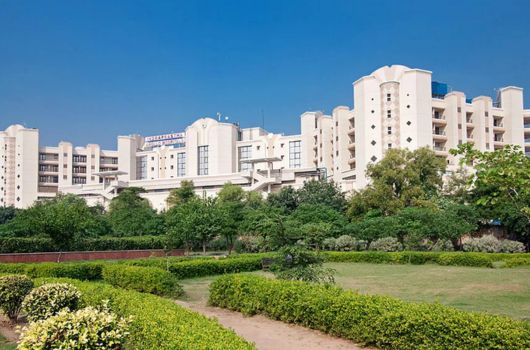


.jpg)


These hospitals follow global treatment guidelines and provide full support for Bangladeshi patients through Bangla Health Connect.
The average cost in India ranges from $5900 to $9000, while in Thailand it ranges from $22,000 to $36,000. The final cost may vary based on multiple factors such as the treatment method, hospital location, and type of disease. Before viewing the detailed table of treatment-wise costs, it's helpful to understand what influences these expenses most.
Several things can change how much liver disease treatment will cost. These include:
Note: India is well known for offering cost-effective advanced treatment. Hospitals combine affordability with strong clinical outcomes, supported by skilled experts and the widespread availability of generic medicines.
Note: Thailand’s hospitals are often promoted as premium destinations for international patients. Their higher costs reflect the use of advanced imported medicines, luxury infrastructure, and all-inclusive patient care packages.
The costs listed are approximate and may vary based on hospital, location, and patient needs. Consult the healthcare provider for accurate and updated information.
The currency conversion rates in the table above are based on data from October 2025.
For more help on cost estimates and personalised guidance, contact Bangla Health Connect.
Success in liver disease treatment means the disease is controlled or cured, and the patient can go back to a normal or near-normal life.
Liver transplant is a proven treatment option for individuals with end-stage liver disease. Thanks to major progress in surgery, anaesthesia, and immune-suppressing medications, survival rates have improved greatly over 90% at one year and more than 75% at five years. Most patients can resume normal daily activities after the procedure, though continuous medical follow-up and lifelong use of immunosuppressants are necessary.
Top hospitals focus on accurate diagnosis, advanced treatment, and holistic care for liver patients. Their approach includes:
This combination of advanced technology, specialist expertise, and patient-focused care has significantly improved survival rates and quality of life for liver patients.

In a discussion on “How to Take Care of Your Liver”, Dr. Manish C Varma, Consultant Transplant Surgeon, and Dr. Naveen Palavarapu, Consultant Hepatologist & Gastroenterologist at Apollo Hospitals Hyderabad, explain key facts about liver health. They talk about early signs of liver disease, how the liver can naturally regenerate, and common causes like fatty food, alcohol, and hepatitis. The doctors also explain when a liver transplant is needed and the different types of transplants available. Their advice helps patients understand how to spot liver problems early and protect their liver through proper care.
Bangla Health Connect helps Bangladeshi patients get safe and fast treatment for liver diseases worldwide. The team works closely with the leading hospitals to make every step simple and stress-free.
Bangla Health Connect makes this process simple and supportive, from travel arrangements to ongoing medical guidance, ensuring Bangladeshi patients receive high-quality care with peace of mind. Contact Bangla Health Connect today to begin your treatment journey with trusted support every step of the way.
Note: Bangla Health Connect does not provide medical advice of any kind.
When Aman Jawad Uddin, a young boy from Bangladesh, was diagnosed with acute liver failure, his family brought him to Indraprastha Apollo Hospitals in Delhi. Thanks to the expertise and dedication of the Apollo medical team, Aman received a life-saving emergency liver transplant. Today, he is healthy and thriving, and his family is deeply grateful to the doctors and staff at Apollo for giving their son a new lease on life.
✅ Share Your Reports - Bangla Health Connect connects you with trusted hospitals worldwide.
✅ Get treatment plans from leading Hospitals worldwide
✅ Choose the one that fits you
✅ Let us handle the rest
Common liver disease symptoms include tiredness, jaundice, swelling, and appetite loss. Remedies include medicine, a healthy diet, avoiding alcohol, and regular check-ups. Always consult your doctor for proper diagnosis, personalised advice, and treatment.
Life expectancy depends on the stage. With early diagnosis and treatment, many patients live for 10 years or more. Those in late stages may need a liver transplant to survive longer.
Liver cirrhosis cannot be fully cured, but it can be controlled. Early treatment helps slow damage. In advanced stages, a liver transplant may be needed. Management and treatment of liver cirrhosis vary by individual. Always consult a hepatologist or your doctor.
A liver cirrhosis patient should eat fresh fruits, vegetables, lean protein, low-salt meals, and avoid oily food and alcohol. Nutritional needs for liver cirrhosis patients vary individually. Always consult your doctor or a certified dietician.
Yes. Bangla Health Connect provides full support and guides you through the entire process.
Yes. Bangla Health Connect helps you pick the best hospital based on your condition, the specialist’s experience, and your city preference.
Yes. Leading hospitals worldwide follow strict safety and hygiene rules. Bangla Health Connect also arranges airport pickups, safe transport, and hospital guidance.

